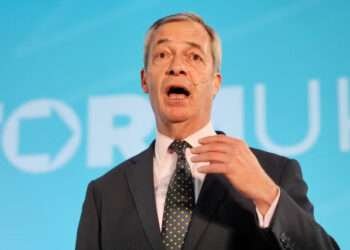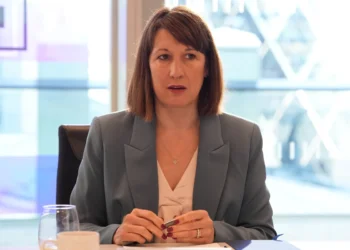The British economy has shown improvement by extending its recovery from the recession, with a growth of 0.6% in the second quarter of the year.
This positive development comes as a boost to Chancellor Rachel Reeves as she prepares for the upcoming autumn budget.
According to the latest data from the Office for National Statistics (ONS), the UK’s gross domestic product (GDP) continued to expand following a 0.7% growth in the first quarter of 2024.
This performance aligns with the forecasts set by economists in the City of London. However, despite this quarterly progress, monthly GDP growth was stagnant in June, with wet weather discouraging consumer spending during what has been a disappointing summer for retailers.
Ben Jones, lead economist at the Confederation of British Industry, remarked that the figures indicate the economy has “finally shaken off its slumber of recent years,” though he cautioned that challenges remain in sustaining long-term growth.
“We think the quarterly data probably overstates the underlying momentum in the economy, with recent CBI surveys of activity remaining fairly subdued,” he explained. Nevertheless, there is confidence among businesses that the recovery will persist.
The ONS snapshot highlighted that the service sector was a key driver of this growth, with output rising by 0.8% in the second quarter.
The sector saw significant contributions from scientific research and development, as well as IT, transport, legal, architectural, and engineering services.
On the other hand, consumer-facing services saw a decline of 0.1%, reflecting the impact of the ongoing cost-of-living crisis and adverse weather on retail sales. The manufacturing and construction sectors also experienced a downturn.
The UK economy has grown faster this year than many had anticipated, a fact that Shadow Chancellor Jeremy Hunt has used to argue that the previous government had set the stage for this recovery.
“Today’s figures are yet further proof that Labour has inherited a growing and resilient economy. The chancellor’s attempt to blame her economic inheritance on her decision to raise taxes – tax rises she had always planned – will not wash with the public.”
Jeremy Hunt
Indeed, the latest figures position the UK as the top performer among the G7 advanced economies over the past six months. The 0.6% growth in the second quarter compares to the eurozone’s 0.3% and the United States’ 0.7%.

UK Economy Extends Recovery Despite Challenges
However, this recent success follows a decade of sluggish performance, and the economy continues to be weighed down by high living costs, elevated interest rates, and slow productivity gains.
The UK entered a recession in the latter half of last year after two consecutive quarters of declining GDP, driven by reduced household spending.
Chancellor Reeves has made it clear that revitalizing the economy is Labour’s top priority, arguing that stronger growth is essential for improving living standards and generating the revenue needed to restore public services.
She is expected to present the autumn budget on October 30. “The new government is under no illusion as to the scale of the challenge we have inherited after more than a decade of low economic growth and a £22bn black hole in the public finances,” Reeves acknowledged.
“That is why we have made economic growth our national mission and we are taking the tough decisions now to fix the foundations, so we can rebuild Britain and make every part of the country better off.”
Rachel Reeves
Despite the recent uptick, experts caution that the economy’s current strength may not be sustainable.
Financial markets are anticipating another potential interest rate cut in September, following a report that inflation rose less than expected in July to 2.2%.
Earlier this month, the Bank of England revised its growth forecast for 2024 from 0.5% to 1.25%, but it also warned of a weaker medium-term outlook as high interest rates are expected to dampen economic activity.
READ ALSO: Policy Stance of Parties on Corruption to Determine Election Outcome





















